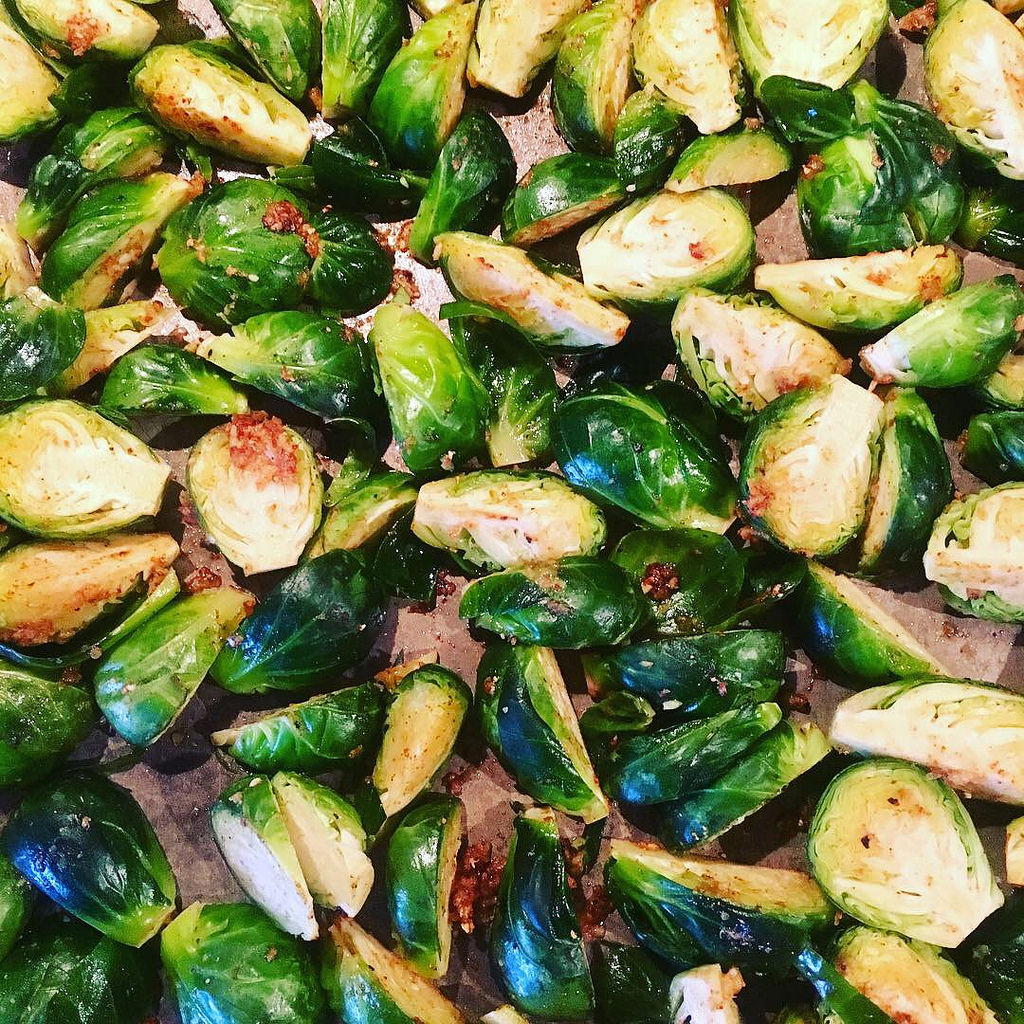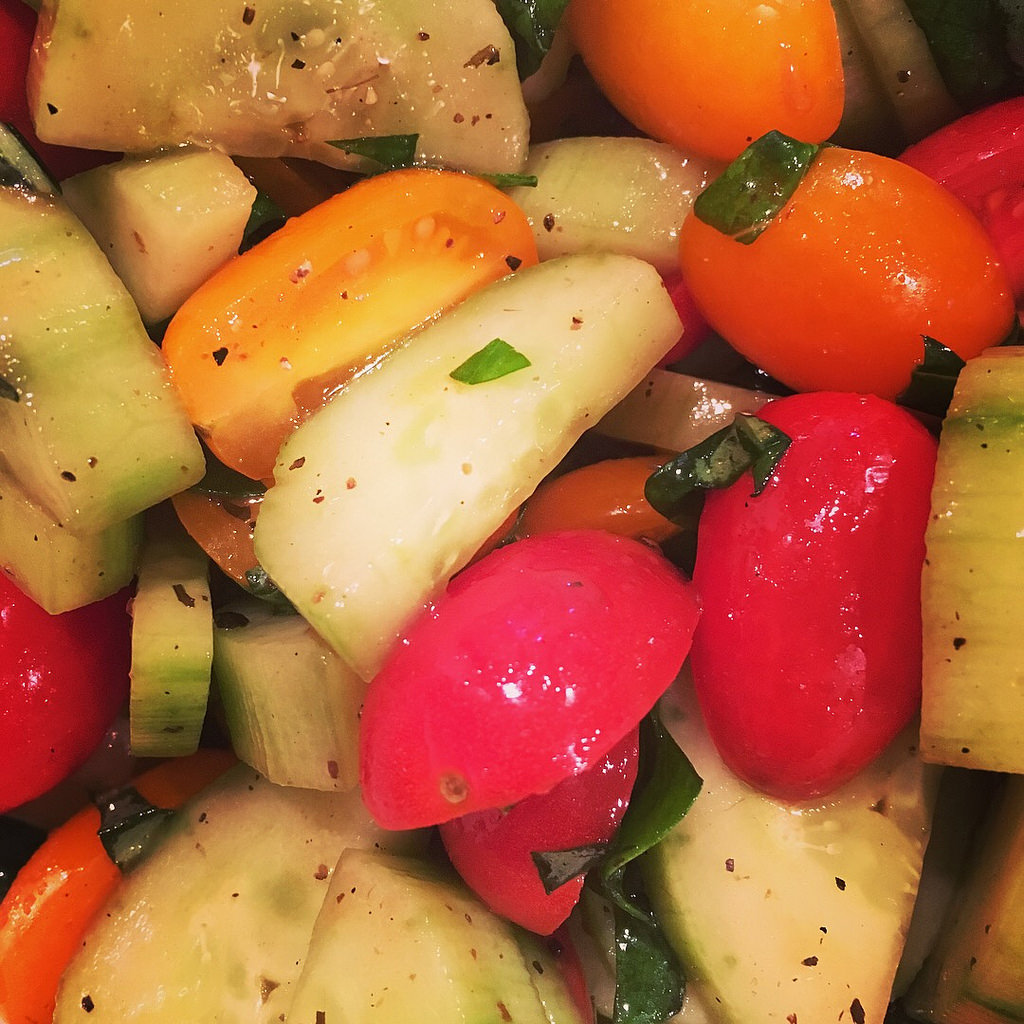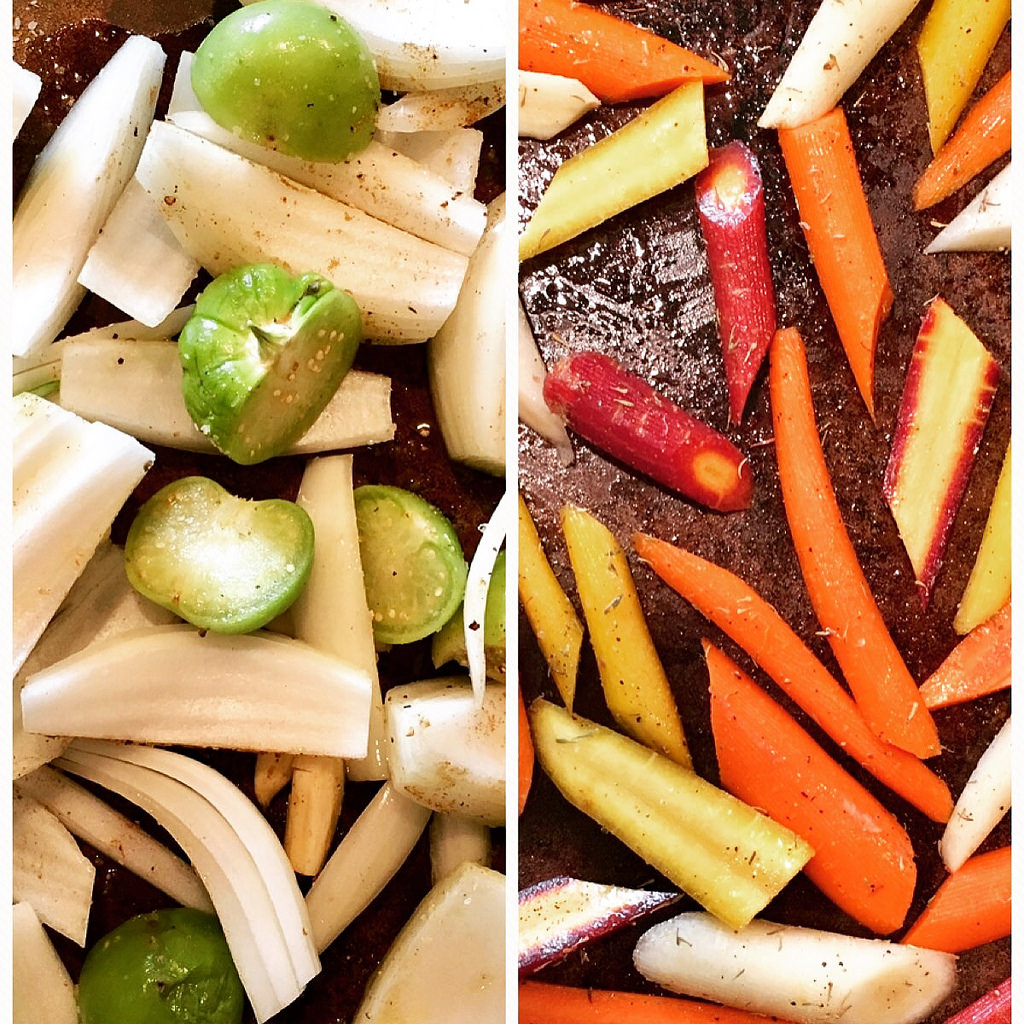Earlier this year my eight-year-old announced that he was no longer going to eat meat.
“OK. Why not?” I asked.
“Because it makes me sad to eat an animal,” he replied.
Well, OK then.
(And, just to give you a little context, there is currently a deep freezer in my garage with nearly 100 pounds of elk, buffalo, whitetail, axis, grass-fed beef, free-range chicken, and andouille. My father has mountains of venison/wild hog tamales made every year. My father-in-law raises cattle and catfish on his land. My brother-in-law uses a spreadsheet to manage the spoils of his annual bison hunt. We fight over the last batch of axis jerky each year. Most of our frozen treasures come from family members who have harvested and processed them themselves. They are largely wild and sustainable, but they are all most definitely animals. As far as my family is concerned, there are no vegetarians for as far as I can see. So, this was going to be interesting.)
At the time of his initial declaration he was still up for eating fish and shrimp (his favorite) and some other seafood, so I didn’t feel too apprehensive about it. We eat a fair amount of non-land animals, so the meal planning didn’t feel like a huge transition. I kept some super handy shrimp and veggie noodle bowls on hand (thank you, Costco) for those meals in which he needed a little extra, and we bebopped along just fine in pescatarian land.

I considered that it might be a phase.
I also considered that he might have just enjoyed the novelty of telling people he was a “pescatarian.”
I also considered that it was a clever way to get some special attention from me because I was often planning his food a little differently than the rest of the family’s.
Mostly, though, I thought about how I could best support him and try to encourage my very carnivorous family to also be supportive.
And then we took a family vacation for more than two weeks, and meals got trickier on the road. One weekend, we stayed at a rental house and were without a kitchen, which forced us to navigate restaurants and unfamiliar grocery stores and very kind but unsuspecting hosts. That meant that on several occasions, his meal was a protein bar from my purse or a package of peanut butter crackers from the stash I kept in my suitcase. He passed on some very scrumptious dinners on that trip. I waited for him to waver. He did not. He noticed the occasional difficulties, but remained unfazed.
I began to consider this was not just a phase.

A few weeks after that vacation, his commitment to pescatarianism seemed invigorated, and we were heading to dinner with some friends. We were talking about how he explains to people why he chooses not to eat animals. He said to me, “Well, the short answer is that it makes me feel bad to eat animals. But the real answer, the truer answer, is that I think about myself as a grownup. Someday I’m going to spend all my time and energy trying to save our planet and environment, and I really think I need to be able to say, ‘I haven’t even eaten an animal since I was eight years old.’ I guess I’m just trying to keep my future self from being a hypocrite.”
I’m not often speechless.
But I was.
And that was when I knew: This is definitely not a phase.

Several months later, he made the transition from pescatarian to vegetarian. And I took it seriously right from the start. I did my research. I changed my meal planning. I consulted professionals. And I’ll share a few of the things I have learned so far.
What about protein?!
Of course, plenty of protein sources are not animal-based. The thing about protein is you can’t just take meat off the plate and eat the side dishes. You do need to be thoughtful about replacing the animal protein with something else. Thankfully, my son still eats eggs and some dairy. He loves hummus, beans, broccoli, and several other vegetables high in protein. The big difference is that I can’t just take it for granted anymore. I have to really look at what he’s eating each week to make sure the substitutes are in there. Because, come on, we all know he’d happily subsist on macaroni and Rice Krispie treats if I gave him the green light. So, substitution is key.
Supplements are your friend.
Just to make myself feel a little less worried about my meal-planning skills, I investigated some supercharged multivitamins for children. There is legitimate concern about the B vitamins, particularly 12, and iron deficiencies for non-animal eaters. So, he takes vegan gummy vitamins each morning, which he basically thinks are candy, and we both feel a lot better.
International cuisine offers great inspiration.
A number of very delicious cuisines around the world are vegetarian-based and do not sacrifice on flavor. It has been a fun investigation for both of us to sit down together and research Indian, Thai, Israeli, Taiwanese, and Italian menus for some ideas about how to incorporate his choice into our regular household meal plan. I am also trying to have at least one vegetarian dinner night each week, and the Meatless Monday movement is a saving grace in this department. I also think involving kids in meal planning, whether vegetarian or not, helps them learn to be intentional about their choices while increasing the chances that they’ll actually eat what you fix!
Convenience is possible.
Because I have two firmly entrenched carnivores in my household and I do not want to be a full-time, short-order cook, I was also in search of some convenience factors for this new culinary adventure. I have learned to double up on the vegetarian entrees when I make them so he always has some leftovers handy for those nights he isn’t thrilled with our side dishes. And I keep the freezer stocked with Amy’s frozen meals to help cover any other “emergency.”
Their “why” is important.
We continue to have conversations about his thoughts and feelings regarding our food supply. From a parenting perspective, I think this is imperative. I want to understand how my son sees the world and his place in it, and I want him to know that I am interested in all of that. I also want to communicate that he is free to make choices different from mine and that I will do my best to support him. After all, that is one of my major goals of parenting, so I’m trying not to miss the opportunity! (And, several professionals I consulted suggested that with teenagers the “why” is very important, as it helps to screen for kids who are simply calorie restricting or trying to disguise an eating disorder.)
Overall the whole experience so far has been a tremendous reminder that we are just ushering these tiny humans into their own lives. They have their own ideas, convictions, and values, and while we are a major influence on them, ultimately they will be their very own people. I hope I provide more support than hindrance to that journey, especially when it will eventually be about something much more important than broccoli.












This is exactly my 7 year old. Our biggest struggle is getting him to understand that not everyone feels the same way he does. When other people eat meat around him (turkey at Thanksgiving, etc) he cries and has a meltdown because we are killing and eating animals. How does your son handle those situations and other people not having the same beliefs as him?
Awww – sweet boy!! My son does express sadness and discomfort over it… but he’s a little older than yours, and I guess he’s regulating that a little better these days than he used to. We’ve tried to draw some parallels for him between less emotional things – like how we don’t get to tell other people about their religion or where they choose to go to school or what they play on the playground – everyone gets to make their own choices about all kinds of things. And, as a therapist, I have explained to him that I see parents doing things to their children that I believe are harmful, but I don’t get to step in and take charge of that either, even if it is upsetting to me. (And we do practice breathing exercises and re-directing thoughts fairly often to help with coping in uncomfortable or upsetting situations.) It is such a hard lesson to learn that we are only in control of ourselves, only responsible for ourselves… but with kiddos like ours, it sure does start young! 🙂 Good luck navigating with your little one (and thanks for reading/commenting!) Merry Christmas!